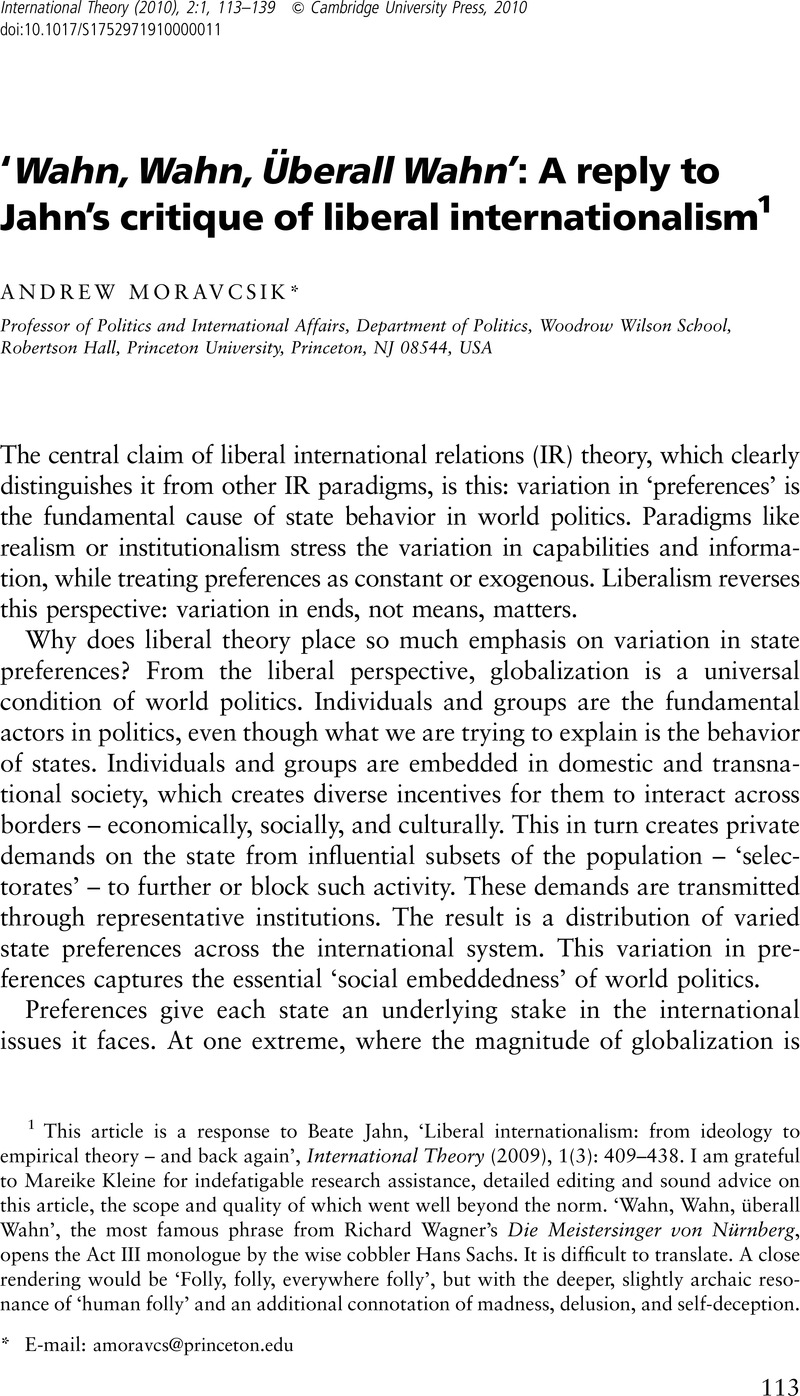Published online by Cambridge University Press: 01 March 2010

This article is a response to Beate Jahn, ‘Liberal internationalism: from ideology to empirical theory – and back again’, International Theory (2009), 1(3): 409–438. I am grateful to Mareike Kleine for indefatigable research assistance, detailed editing and sound advice on this article, the scope and quality of which went well beyond the norm. ‘Wahn, Wahn, überall Wahn’, the most famous phrase from Richard Wagner’s Die Meistersinger von Nürnberg, opens the Act III monologue by the wise cobbler Hans Sachs. It is difficult to translate. A close rendering would be ‘Folly, folly, everywhere folly’, but with the deeper, slightly archaic resonance of ‘human folly’ and an additional connotation of madness, delusion, and self-deception.